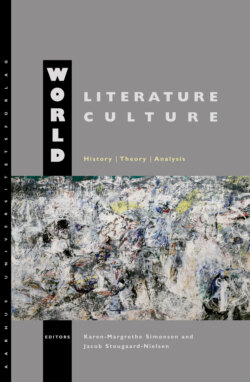Читать книгу World Literature, World Culture - Группа авторов - Страница 19
На сайте Литреса книга снята с продажи.
CONCLUSION: COMPARATIVE LITERATURE AND PHILOSOPHY OF HISTORY
ОглавлениеThe question is, if literature really is Burckhardt’s centaur, how is one to engage with such a monstrous creature in a scholarly fashion, that is, how can comparative literature redeem the aborted project of philosophy of history in its analyses of literature.
I think this is a much easier question than it may seem at first sight: coordination and subordination, history and philosophy, or history and aesthetics are indeed impossible to practice, if, that is, one wants to practice all of them at the same time. Instead, however, they can be played out against each other. Philosophy and aesthetics can and should be practiced autonomously; but when they would seem to be stuck in their own pathos, history can be invoked to help find a path out of the muddy ground of concepts and introduce co-ordination, examples, things. And vice versa: as soon as the material of history pushes the project to the precipice of meaningless relativism, philosophy and aesthetics might help. This movement of systole/ diastole can cut across the borders not just of disciplines but of ideologies and ontologies as well, and can thus inform a comparative literature that, rather than relying on either interpretation or deconstruction, operates by constellation, by placing works and their aesthetics or history side by side, repeating the same oscillating movement from one to another over and over again, until the coincidental structures of the works analyzed reconstitute themselves in the analysis.
Such an a-disciplinary model based on a philosophy of history could point toward a comparative approach to literature that is able to ask questions in which history, ontology, and aesthetics are not mutually exclusive but rather mutually supportive notions. Leaving behind disciplinary axioms (“historical reality as such,” “fiction as such,” etc.), a more comprehensive approach could evolve. And finally, comparative literature could in this way achieve a different kind of self-awareness without actually spending too much time on dealing with itself and its history.
